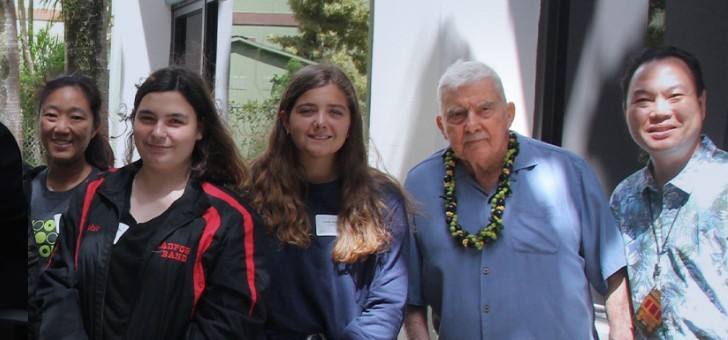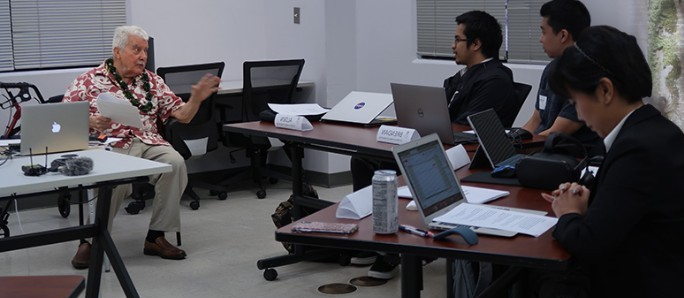Edgar Harrell, Ph.D., has spent the last 20 years helping tech startups to succeed. But for Ed, success is defined not only in terms of a company’s profitability, but is also a matter of having a positive impact on society. He believes that the work he does and the work of the companies he works with has the potential for good, and he is heartened to see more of a social conscience among today’s young entrepreneurs.
“I think people want more than making money,” he says. “I think people want to feel satisfied that they’re doing something that makes a difference. Is that too idealistic?”
Ed believes that it makes good sense to try to solve a problem in a way that is useful to society, and that this is not inconsistent with making money, a belief that is a driving force behind his efforts.
Recent years have seen a notable increase in the number of individuals turning to entrepreneurial endeavors. However, many startups also fail within the first year. The difference between successful businesses and unsuccessful businesses lies in no small part in the ability to attract investors and customers. In other words: the pitch.
This is where Ed helps entrepreneurs to thrive. Now based in D.C., he has extensive experience working for the U.S. State Department, in private industry, and as a university professor. However, while reflecting upon the fact that he wasn’t finding his work to be “as rewarding as I wanted it to be,” he was asked to help a group of entrepreneurs to develop their sales pitches. Thus was born Edgar C. Harrell Associates, Inc., which has provided advice and investor services to tech startups for over 20 years.
But where Ed really shines is in his work with students. He had the opportunity to work with a group of eighth-grade students in Honolulu who had designed new products as part of a science class project and were preparing to present their ideas in a statewide pitch competition. Ed’s approach, while perhaps somewhat unusual, is actually rather intuitive. First, he asks that the student not bring a copy of a pitch deck or business plan to their initial meeting. Instead, Ed says, “we’re going to talk about what you’re good at, because a pitch is just about making the best impression you can.” Once Ed and his student have worked to determine the student’s strengths, they can then focus on the substance of the pitch.

Ed Harrell with students. (Courtesy photo)
In addition, Ed emphasizes that a good pitch is a matter of good communication, which is ultimately rooted in clear thought processes.
“All entrepreneurship is a way of thinking,” he says. “I’m going to help them think differently.”
And learning how to develop a good pitch will have benefits in other aspects of one’s life as well: “Once they learn how to present themselves confidently and precisely, they’ll have that for of their life. It will even help you with your proposal for marriage, because you’ll be able to say the right words with the right meaning!”
Ed has returned to Hawaii each year since 2013 as professional in residence at the University of Hawaiʻi at Mānoa, working with the university’s accelerator program, mentoring student entrepreneurs, and working with local high school students on how to think like entrepreneurs.
He has also served as entrepreneur in residence for Harrisburg University of Science and Technology, a relatively newly established private STEM university in Pennsylvania, where he developed a certificate program in entrepreneurship and made other contributions to the entrepreneurship program. Ed has also worked closely with the business incubator Founder Institute, helping to form their Washington, D.C. program and mentoring the entrepreneurs who are selected to enroll in the program, and has served on the board of advisors for the Maryland Tech Council’s Maryland Health Care Product Development Corporation.
The eighth-grade science students who he mentored for their statewide competition? They took first, second, and third places. Ed hasn’t looked back since.
Before you go...
Please consider supporting Technical.ly to keep our independent journalism strong. Unlike most business-focused media outlets, we don’t have a paywall. Instead, we count on your personal and organizational support.
Join our growing Slack community
Join 5,000 tech professionals and entrepreneurs in our community Slack today!

The person charged in the UnitedHealthcare CEO shooting had a ton of tech connections

From rejection to innovation: How I built a tool to beat AI hiring algorithms at their own game

Where are the country’s most vibrant tech and startup communities?


